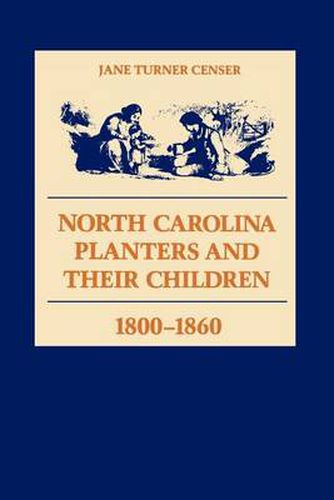Readings Newsletter
Become a Readings Member to make your shopping experience even easier.
Sign in or sign up for free!
You’re not far away from qualifying for FREE standard shipping within Australia
You’ve qualified for FREE standard shipping within Australia
The cart is loading…






This title is printed to order. This book may have been self-published. If so, we cannot guarantee the quality of the content. In the main most books will have gone through the editing process however some may not. We therefore suggest that you be aware of this before ordering this book. If in doubt check either the author or publisher’s details as we are unable to accept any returns unless they are faulty. Please contact us if you have any questions.
Many historians of late have portrayed upper-class southerners of the antebellum period as inordinately aristocratic and autocratic. Some have even seen in the planters’ family relations the faint yet distinct shadow of a master’s dealings with his slaves.
Challenging such commonly held assumptions about the attitudes and actions of the pre-Civil War southern elite, Jane Turner Censer draws on an impressive array of primary and secondary sources, including letters, diaries, and other first-person accounts as well as federal census materials and local wills, deeds, and marriage records, to show that southern planters, at least in their relations with their children, were caring, affectionate, and surprisingly egalitarian. Through the close study of more than one hundred North Carolina families, she reveals the adults to have been doting parents who emphasised to their children the importance of education and achievement and the wise use of time and money.
The planters guided their offspring toward autonomy by progressively granting them more and more opportunities for decision making. By the time sons and daughters were faced with choosing a marriage partner, parents played only a restrained advisory role. Similarly, fathers left career decisions almost entirely up to their sons. Censer concludes that children almost invariably met their parents’ high expectations. Most of them chose to marry within their class, and the second generation usually maintained or improved their parents’ high economic status.
On the other hand, Censer finds that planters rarely developed warm, empathetic relationships with their slaves. Even the traditional
mammy,
whose role is southern planter families was been exalted in much of our literature, seems to have held a relatively minor place in the family structure. Bringing to light a wealth of previously unassimilated information, North Carolina Planters and Their Children points toward a new understanding of social and cultural life among the wealthy in the early nineteenth-century South.
$9.00 standard shipping within Australia
FREE standard shipping within Australia for orders over $100.00
Express & International shipping calculated at checkout
This title is printed to order. This book may have been self-published. If so, we cannot guarantee the quality of the content. In the main most books will have gone through the editing process however some may not. We therefore suggest that you be aware of this before ordering this book. If in doubt check either the author or publisher’s details as we are unable to accept any returns unless they are faulty. Please contact us if you have any questions.
Many historians of late have portrayed upper-class southerners of the antebellum period as inordinately aristocratic and autocratic. Some have even seen in the planters’ family relations the faint yet distinct shadow of a master’s dealings with his slaves.
Challenging such commonly held assumptions about the attitudes and actions of the pre-Civil War southern elite, Jane Turner Censer draws on an impressive array of primary and secondary sources, including letters, diaries, and other first-person accounts as well as federal census materials and local wills, deeds, and marriage records, to show that southern planters, at least in their relations with their children, were caring, affectionate, and surprisingly egalitarian. Through the close study of more than one hundred North Carolina families, she reveals the adults to have been doting parents who emphasised to their children the importance of education and achievement and the wise use of time and money.
The planters guided their offspring toward autonomy by progressively granting them more and more opportunities for decision making. By the time sons and daughters were faced with choosing a marriage partner, parents played only a restrained advisory role. Similarly, fathers left career decisions almost entirely up to their sons. Censer concludes that children almost invariably met their parents’ high expectations. Most of them chose to marry within their class, and the second generation usually maintained or improved their parents’ high economic status.
On the other hand, Censer finds that planters rarely developed warm, empathetic relationships with their slaves. Even the traditional
mammy,
whose role is southern planter families was been exalted in much of our literature, seems to have held a relatively minor place in the family structure. Bringing to light a wealth of previously unassimilated information, North Carolina Planters and Their Children points toward a new understanding of social and cultural life among the wealthy in the early nineteenth-century South.